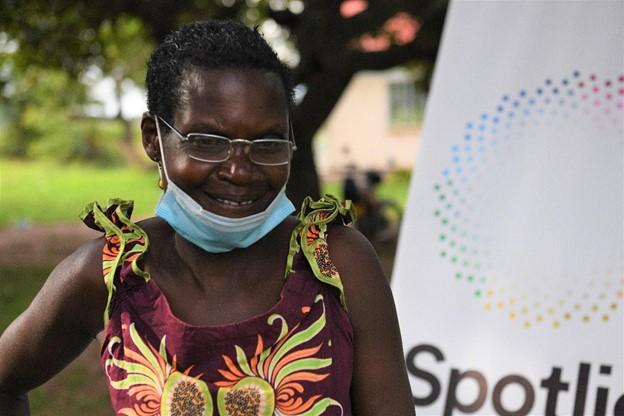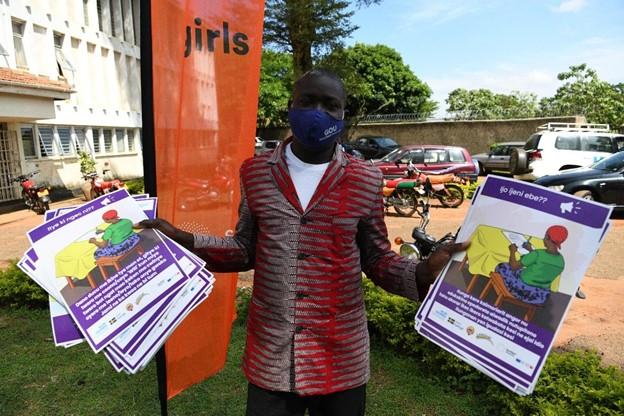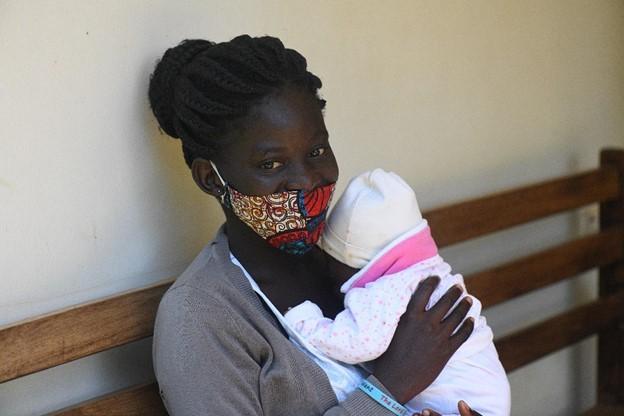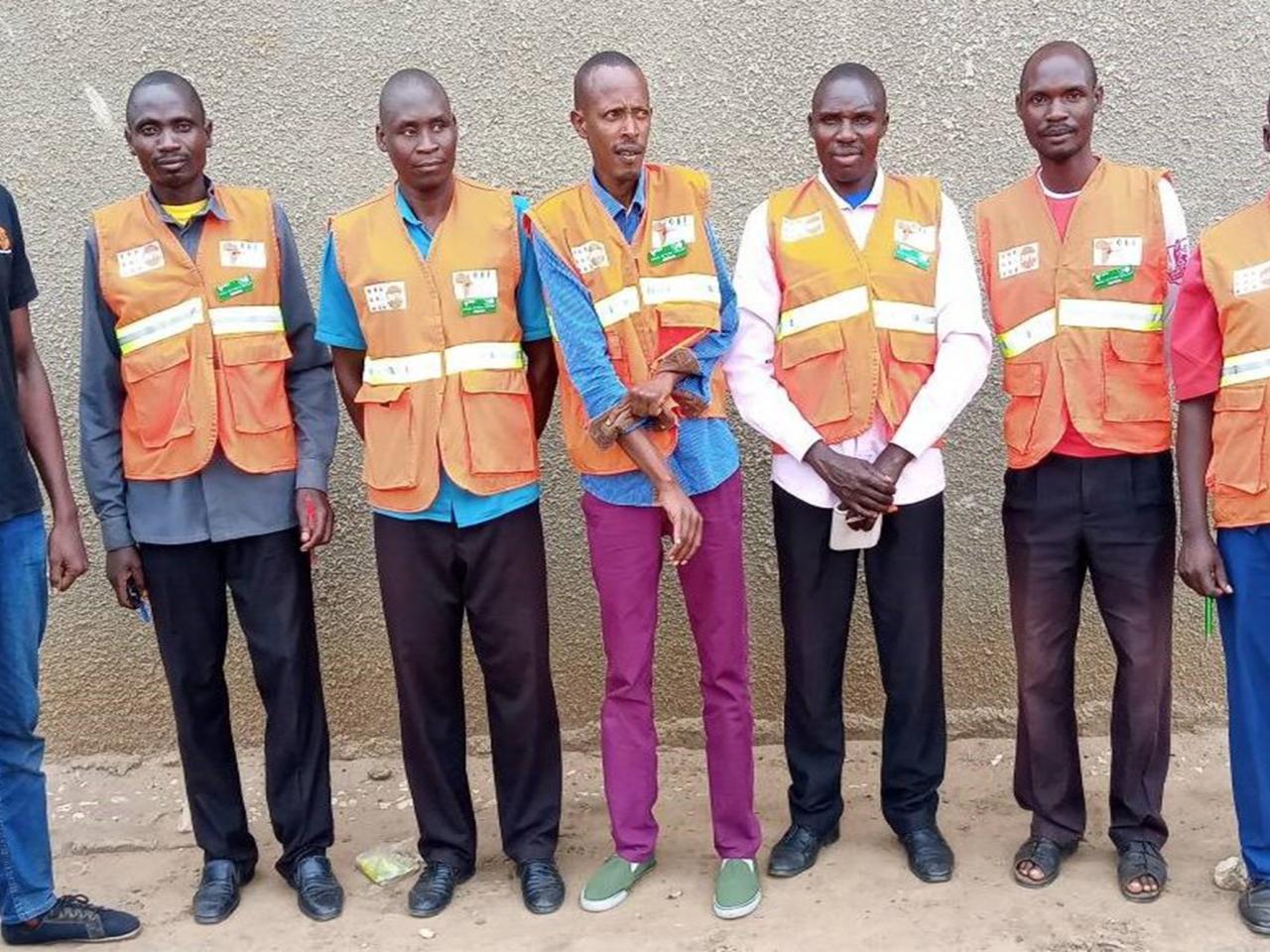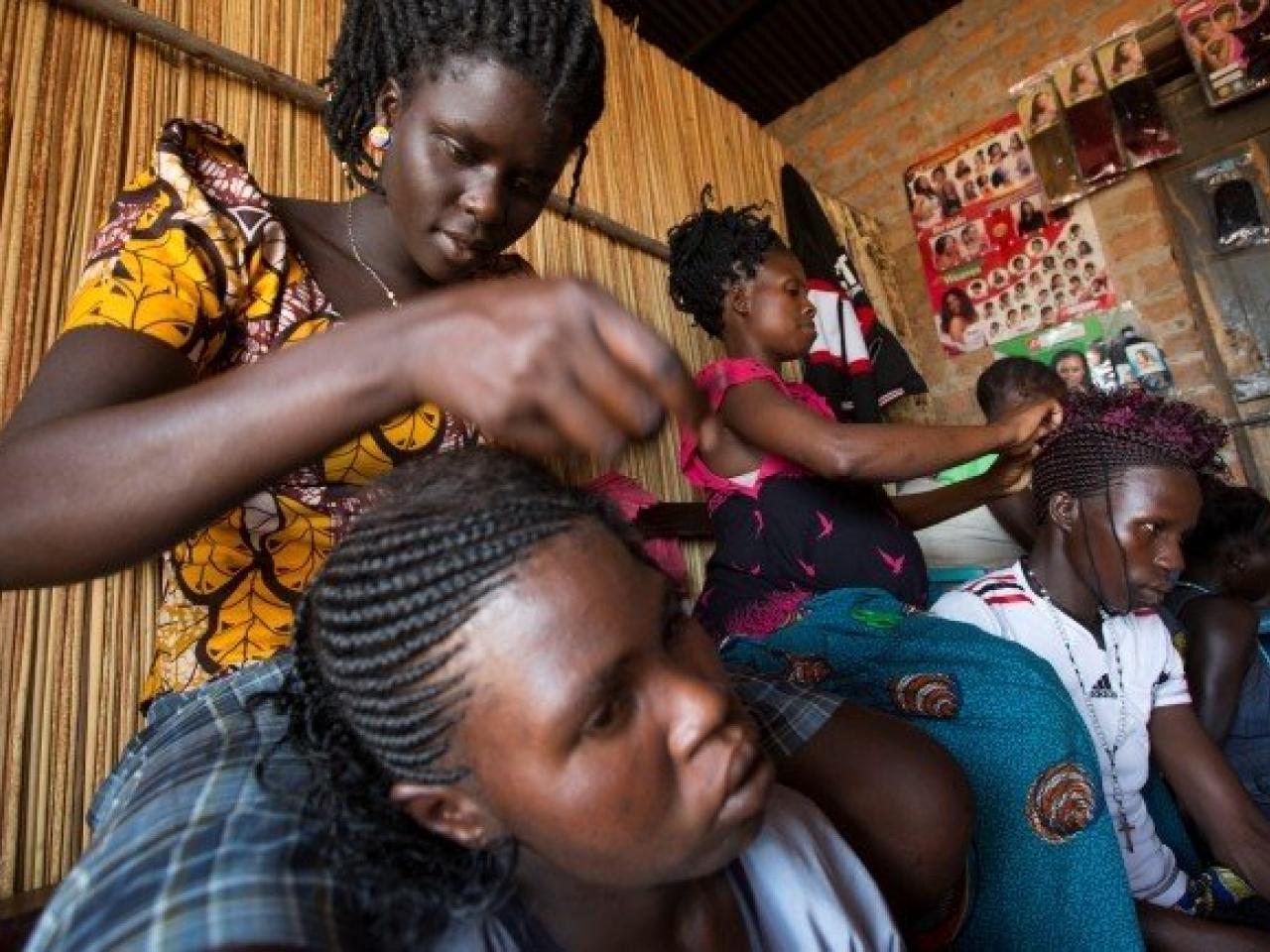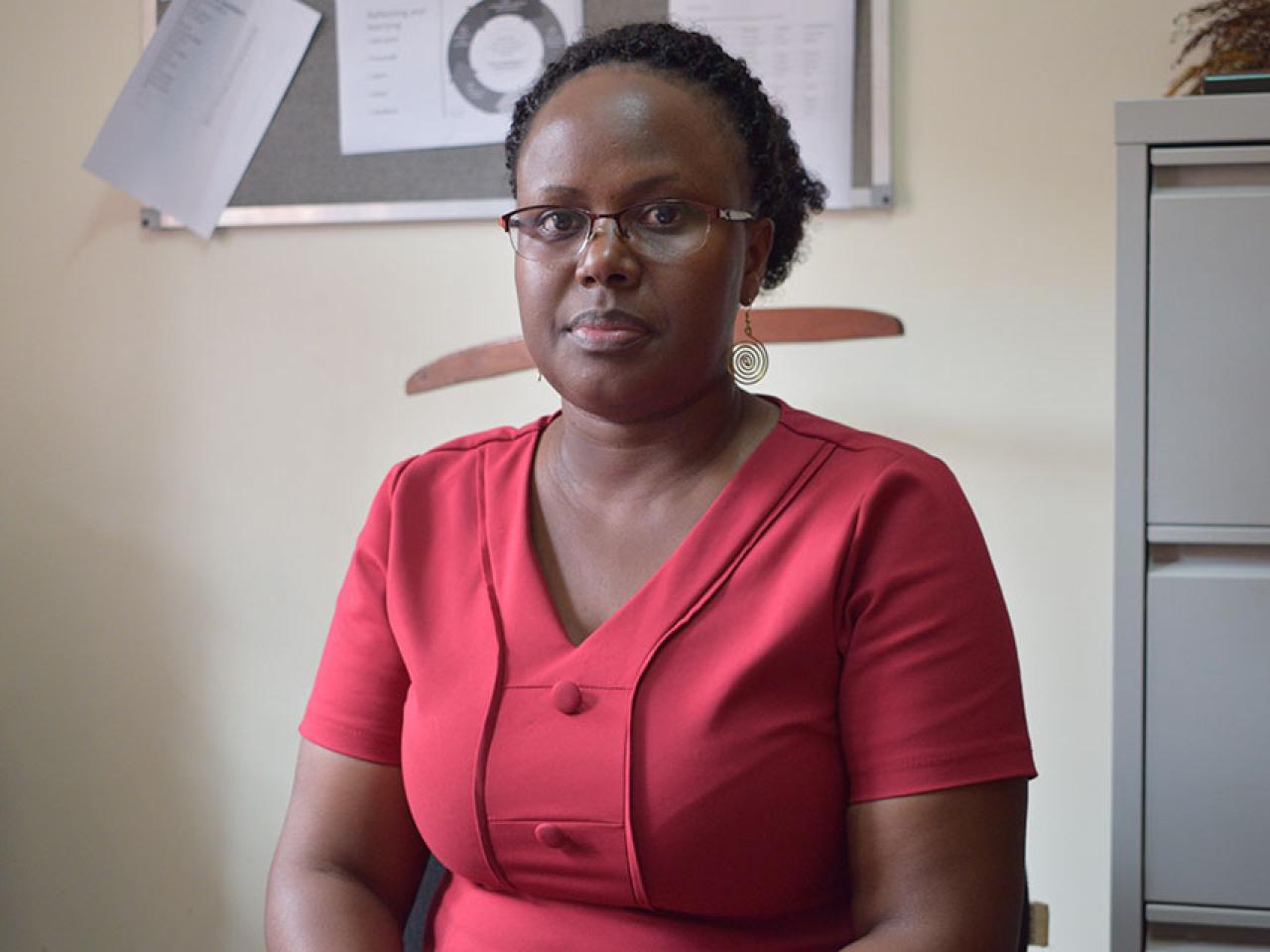Voices from Tororo: working to end gender-based violence in Uganda
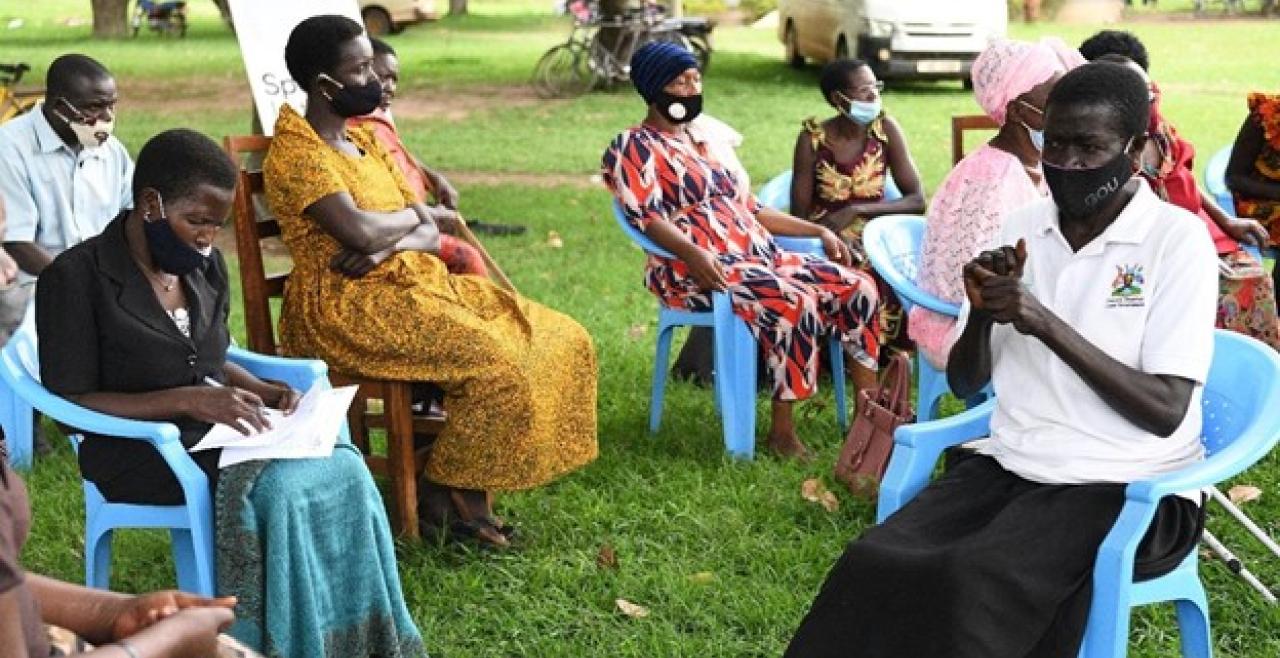
TORORO, Uganda - One in two Ugandan women aged 15-49 have experienced physical violence, according to the Uganda Demographic Health Survey (2016).
In the eastern district of Tororo, one of the regions where Spotlight Initiative is being implemented, this figure is even higher. Almost 70 per cent of women in Tororo experience intimate partner violence in their lifetime according to the Uganda Bureau of Statistics.
However, survivors, civil society organizations and activists are working together to speak out against abuse and ensure women and girls are free to reach their full potential.
Below, community members share their stories.
MARY AMOLLO, SURVIVOR
Mary Amollo, 42, has 11 children with her husband of 25 years. Though he started assaulting her shortly after they were married, the beatings became increasingly violent over the years. Ms. Amollo says her husband’s alcoholism was the cause of most fights, along with his refusal to support the education of their children. He would often sell the family’s food and other household items for drinking money.
On one occasion, he beat Ms. Amollo so badly that he permanently damaged her pelvic bone and ribs, rendering her disabled. Her right eye was also injured and required an operation.
"I am relieved that the counsellor still follows up with us and comes to our home." - Mary Amollo, 42
After hearing what had happened, Ms. Amollo’s friend referred her to Uganda Women's Network (UWONET) — a Spotlight Initiative-supported organization that advocates for women’s rights. UWONET Community Activist Faith Nora ensured Ms. Amollo got immediate medical attention at Tororo Main Hospital and helped facilitate the arrest of Ms. Amollo’s husband.
After the incident, Ms. Amollo’s husband agreed to undergo UWONET-facilitated mediation in an effort to address his violence. Today, Ms Amollo attends family counselling with her husband, and receives ongoing individual counselling from a community volunteer counsellor to ensure the violence has ended for good.
“I am relieved as Faith [the counsellor] still follows up with us and comes to our home to do counselling between me and my husband. We have now been remarried in church and we are happy,” says Ms. Amollo.
WYCLIFFE ODIYA, ACTIVIST
Wycliffe Odiya, 40, is a busy man. He is the Team Lead of Community Land Rights with LandNet, a Spotlight Initiative-supported organization that advocates for women’s access to and ownership of land. Since 2019, Mr. Odiya has trained more than 40 women and men in Tororo to advocate for gender equality in property distribution and management. He often mediates land disputes at a community level, and refers more complex cases to the police and courts.
“In Uganda, cases of violence [against women] are usually associated with land,” explains Mr. Odiya. Gender-based discrimination often means that women are denied land access or ownership when property is inherited or in the case of a separation. Unfortunately, these situations can turn violent.
"In Uganda, cases of violence [against women] are usually associated with land." - Wycliffe Odiya, 40
While the recently passed Succession Amendment Bill aims to address gender-based discrimination in property distribution, community activists like Mr Odiya are critical to ensuring that the law is respected. “When I resolve a case, I feel relieved and free,” he says.
On a personal level, the work has inspired him to make changes in his own life.
“The LandNet training changed my attitude,” he says. "I was inspired to distribute some land to my two aunts, gifting one acre to each of them. Land is the basis of primary production in a home. When women are given access to utilize it without being disturbed, then there's peace and progress in the home.”
RUTH AMUKAGA, SURVIVOR
Ruth Amukaga, 23, was eight months pregnant when she arrived at Mifumi gender-based violence shelter in Tororo after suffering emotional and financial abuse from the father of her child.
“I received counselling on the very first day I arrived,” says Ms. Amukaga. “I spoke with Aunty Susan (Counsellor and Shelter Caretaker). She helped me and held my hand in the process of reporting my case to the police. She brought joy into my heart because I was really frustrated and I hated myself. Mifumi accepted me and supported me until after the birth of my daughter.”
"Mifumi accepted me and supported me until after the birth of my daughter.” - Ruth Amukaga, 23
When an international funding agreement for Mifumi’s two shelters ended during the COVID-19 pandemic, Spotlight Initiative funds were reprogrammed to fill the gap so that women like Ms. Amukaga could continue to access essential services.
In addition to accommodation, the shelter offers skills training so that women can become financially independent. Ms. Amukaga plans to use this training to learn how to make reusable pads that she can sell to earn a living. “In the future, I am looking forward to learning some tailoring skills,” she says.
By Eva Noma Sibanda

